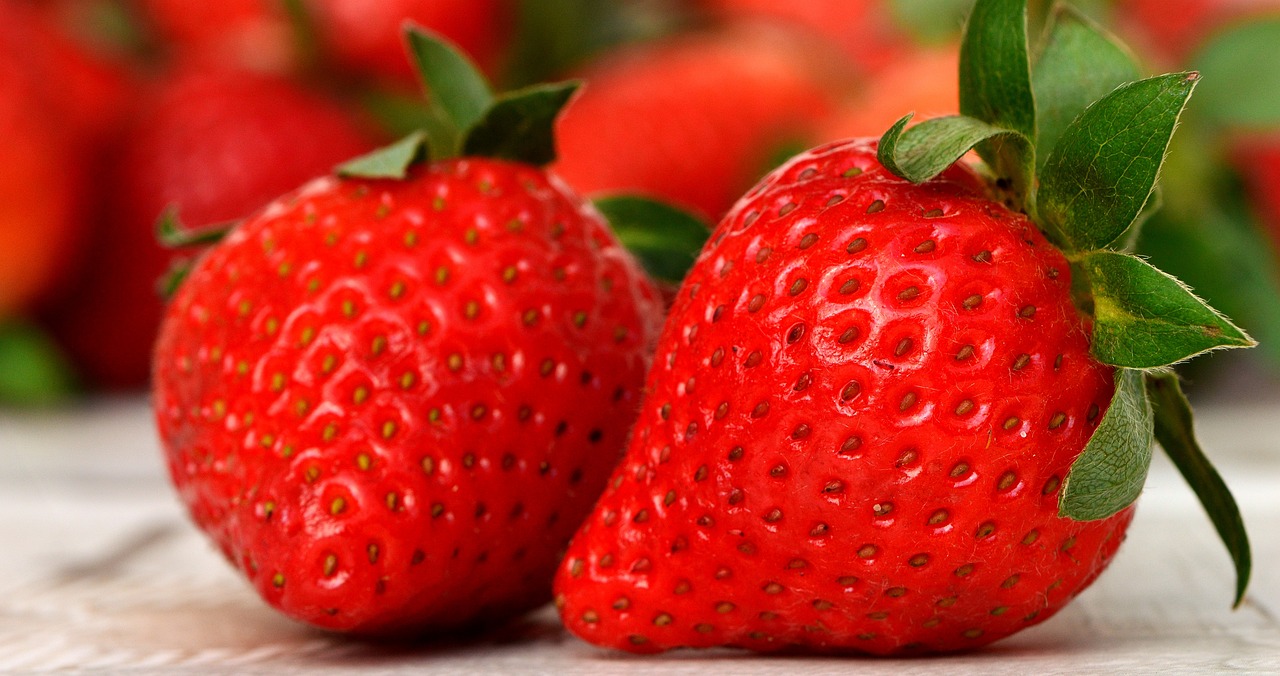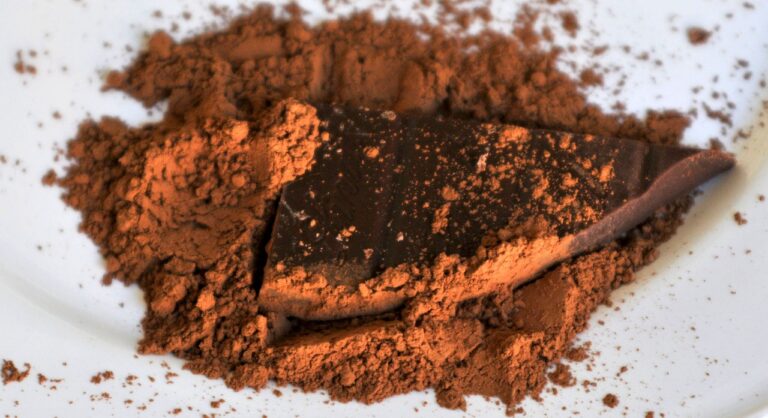These Are 10 Reasons Why You Are Craving Fruit

Fruits, nature’s candy, have been a staple in human diets for centuries. From the sweet succulence of a ripe mango to the refreshing burst of a watermelon slice, fruits offer a tantalizing taste and texture that often leaves us wanting more. Beyond just their taste, there are numerous reasons why we find ourselves craving these colorful delights. Here’s a look into ten compelling reasons why our bodies and minds lean towards fruits.
Why Am I Craving Fruit?
1. Nutritional Value
Fruits are packed with essential vitamins, minerals, and fiber. They offer a natural source of nutrients like vitamin C, potassium, and dietary fiber. Consuming them not only satiates our taste buds but also nourishes our body.
The human body, in its innate wisdom, often craves what it needs. So when you find yourself reaching out for an orange, it might be your body’s subtle hint at requiring a dose of vitamin C or other essential nutrients present in that fruit.
2. Natural Sugar Source
Unlike processed sugars and candies, fruits contain natural sugars like fructose and glucose, which provide instant energy. These sugars are accompanied by fiber and water, making them a healthier choice for an energy boost.
When we feel an energy dip, our body signals the need for a quick source of fuel. Fruits provide this energy in a wholesome way, ensuring we are energized without the negative impacts of refined sugars.
3. Hydration
Many fruits have high water content. Watermelon, cucumber, and strawberries, for instance, contain over 90% water. This makes fruits an excellent source for hydration.
On a hot day, or after a workout, the body may crave hydration. Fruits not only replenish lost fluids but also offer a delightful taste, making rehydration enjoyable.
4. Weight Management
Fruits are naturally low in calories, and their fiber content helps in making one feel full. Incorporating them into snacks or meals can help in reducing overall caloric intake.
For those mindful of their weight or aiming for weight loss, craving fruits might be the body’s way of seeking a low-calorie yet filling option.
5. Digestive Health
The fiber in fruits aids in digestion and promotes a healthy gut. Regular fruit consumption can help prevent constipation and ensure smooth bowel movements.
When experiencing digestive discomfort, the body might lean towards fruits to restore balance and facilitate digestion.
6. Mood Enhancer
Certain fruits, like bananas, contain tryptophan which is converted to serotonin – a mood-regulating neurotransmitter. Consuming these can lead to a boost in mood and overall well-being.
In moments of emotional dips, the body might crave fruits to elevate the mood and induce feelings of happiness.
7. Antioxidant-rich
Fruits like blueberries, strawberries, and cherries are rich in antioxidants. These compounds help in combating free radicals and reducing oxidative stress.
Craving antioxidant-rich fruits might be the body’s defense mechanism against potential threats from free radicals, especially after exposure to pollution or stress.
8. Dental Health
While excessive fruit consumption can affect dental health due to natural sugars, certain fruits like apples are known to stimulate saliva production which can reduce tooth decay.
Craving an apple might not just be about enjoying its crispy texture; it could also be an instinctual move towards maintaining dental health.
9. Improved Skin Health
Vitamins and antioxidants in fruits are beneficial for skin health. Regular consumption can lead to radiant, hydrated, and youthful skin.
The desire for fruits could sometimes be the body’s way of seeking nourishment for the skin, ensuring it remains supple and glowing.
10. Cultural and Social Influences
Fruits often hold cultural significance and are associated with festivities, rituals, and gatherings. Memories related to fruit consumption can lead to cravings rooted in nostalgia or social associations.
Yearning for a specific fruit might sometimes be tied to a memory, ritual, or tradition, making the craving deeply personal and culturally linked.
Always Craving Fruit
Craving fruits is a common phenomenon experienced by many individuals. The naturally sweet taste, the variety of flavors, and the nutritional benefits make fruits a desirable choice for both meals and snacks. For some, fruits satisfy sugar cravings without the guilt of consuming unhealthy snacks. Additionally, the body might desire certain vitamins, minerals, or fibers present in fruits, leading to persistent cravings.
Yet, a persistent craving can sometimes indicate an underlying deficiency or health condition. For instance, craving fruits can occasionally be a sign that your body is in need of more essential nutrients like vitamin C or potassium. It’s essential to strike a balance, ensuring a varied diet and consulting a nutritionist or health professional if you notice intense, consistent cravings.
Craving Canned Fruit
Canned fruits have been a staple in many households for decades. Their convenience, shelf life, and the ability to preserve seasonal fruits make them a favorite for many. For some, the craving for canned fruits isn’t just about the fruit itself but the syrupy liquid they’re often stored in, which can be sweeter and more flavorful than the natural fruit juices.
However, while canned fruits can satisfy a sweet tooth, they can sometimes contain added sugars and preservatives, making them a less healthy option compared to their fresh counterparts. It’s always a good idea to read labels and choose canned fruits with no added sugars or syrups, especially if you find yourself craving them frequently.
Craving Citrus Fruit
Citrus fruits like oranges, grapefruits, lemons, and limes are not only refreshing but packed with vitamin C and other essential nutrients. Craving citrus can be a body’s way of signaling the need for these nutrients, especially during colder months when colds and flus are rampant. The zesty, tangy flavor profile of citrus fruits can also be a palate cleanser, making them a desirable snack after a heavy meal.
Moreover, citrus fruits have mood-boosting properties. The bright colors and invigorating scents can act as a natural pick-me-up, possibly explaining why many people gravitate towards them when they need a little lift in spirits. Whether it’s for health or happiness, a citrus fruit craving is generally a good one to satisfy.
Craving Cold Fruit
There’s something exceptionally refreshing about biting into a cold piece of fruit on a hot day. Craving cold fruit might stem from a need for hydration. Fruits, especially water-rich fruits like watermelon, can provide hydration alongside a burst of flavor. Cold fruits can also provide a sensation of relief during warm weather, acting as a natural coolant for the body.
Another perspective is that the act of consuming cold fruits can be a sensory experience. The combination of taste, temperature, and texture can be soothing and satisfying. This might explain why many people enjoy fruits like frozen grapes or chilled pineapple slices, even when the weather isn’t scorching.
Craving Dried Fruit
Dried fruits like raisins, apricots, and figs are concentrated sources of energy and sweetness. Often, people crave dried fruits because they are looking for a quick energy boost. The natural sugars in dried fruits provide an instant pick-me-up, making them a popular choice for those mid-afternoon slumps.
However, it’s worth noting that while dried fruits are nutrient-dense, they are also calorie-dense. Overindulgence can lead to consuming more calories than intended. Furthermore, some dried fruits can have added sugars, making it essential to consume them in moderation and be mindful of the labels when purchasing.
Craving Fresh Fruit
Fresh fruits, with their vibrant colors, enticing aroma, and crisp texture, are nature’s candy. Many people crave fresh fruit for its sheer sensory pleasure. The juiciness of a ripe peach or the snap of a fresh apple can be immensely satisfying. Fresh fruits are also rich in vitamins, minerals, and fiber, making them a wholesome snack choice.
Beyond the sensory and nutritional aspects, cravings for fresh fruit can also arise from cultural or habitual reasons. For some, a meal might feel incomplete without a serving of fresh fruit at the end. It’s a healthy habit to have, but as with all things, it’s essential to enjoy a variety of fruits to reap the broadest range of nutritional benefits.
Craving Frozen Fruit
Frozen fruits offer a unique blend of flavor and temperature. They can be both a treat and a remedy, especially during hot weather. Many people find solace in munching on frozen berries or blending them into smoothies. These frozen delights not only satisfy sweet cravings but also provide a cooling sensation.
In addition, frozen fruits are often picked at their peak ripeness, which means they retain much of their nutritional value when frozen. For those living in areas where certain fruits aren’t always in season, frozen variants become a means to enjoy them year-round. Craving frozen fruit can be the body’s way of seeking both nutrition and sensory satisfaction.
Craving Fruit After Workout
After an intense workout session, the body needs quick energy to recover. Fruits, with their natural sugars, are excellent sources of immediate energy. The body can swiftly break down these sugars, making fruits an ideal post-workout snack. In addition to providing energy, fruits like bananas offer potassium, which can help in preventing muscle cramps.
Moreover, workouts often lead to a loss of fluids through sweat. Hydrating fruits like watermelon or oranges can help replenish lost fluids and restore electrolyte balance. When one craves fruit after a workout, it’s the body’s intuitive way of seeking both nourishment and hydration.
Craving Fruit And Dairy
The combination of fruit and dairy is a classic pairing enjoyed in many cultures. Think of fruit yogurts, fruit-topped cheesecakes, or a simple bowl of berries with cream. Craving this combination can be rooted in the desire for a balanced taste and texture experience. The creaminess of dairy complements the juiciness and tartness of many fruits.
From a nutritional standpoint, combining fruit and dairy can provide a mix of essential vitamins, minerals, proteins, and fibers. For instance, while fruits might offer vitamin C and fiber, dairy can supply calcium and protein. This union not only satisfies the palate but also provides varied nutritional benefits.
Craving Fruit And Salad
Salads offer a refreshing, crunchy, and wholesome eating experience. Adding fruits to salads can elevate them to a whole new level. The sweetness of the fruits can counteract the bitterness of certain greens, creating a harmonious blend of flavors. Craving fruit in salads might arise from the desire for a light yet satisfying meal.
Moreover, incorporating fruits into salads increases the nutritional value. The vitamins and minerals from both fruits and vegetables together can provide a powerhouse of nutrients. So, when you find yourself craving a fruity salad, it might be your body’s way of asking for a diverse range of nutrients packed into one delicious meal.
Craving Fruit And Vegetables
Pairing fruits and vegetables is an age-old practice that showcases the harmony of sweet and savory flavors. A craving for this combination might indicate a desire for a diverse nutrient profile. Vegetables are often rich in certain minerals and vitamins that fruits might lack, and vice versa. Together, they provide a comprehensive nutritional package.
Eating patterns that regularly incorporate both fruits and vegetables are generally considered healthier. These foods are rich in antioxidants, fibers, vitamins, and minerals, promoting good digestion, skin health, and overall well-being. So, if you find yourself craving a stir-fry with pineapples or a salad with oranges and carrots, it might be your body’s way of seeking a full spectrum of nutrients.
Craving Fruit And Water
Hydration is crucial for various bodily functions, and both fruits and water play vital roles in keeping us hydrated. Craving fruit and water might be an indication that your body needs hydration. Fruits, especially water-rich ones like watermelon or cucumber, provide moisture along with a burst of flavor and nutrients.
Water, on the other hand, is essential for every cell in our body. When paired with fruit, it enhances the feeling of fullness and helps in the absorption of certain water-soluble vitamins found in fruits. Listening to this craving is essential, especially during hot weather or after physical activities when the body’s hydration needs are increased.
Craving Fruit At Night
Craving fruit at night can arise from various reasons. For some, it might be a habit cultivated over time, a light snack before bedtime. For others, it might be the body’s way of seeking quick energy, especially after a long day or a late-night workout. The natural sugars in fruits provide a swift energy source that’s easily digestible.
However, it’s worth noting that while fruits are a healthy snack, it’s essential to choose wisely at night. Opt for low-acid fruits like bananas or pears if acid reflux is a concern. Remember, while it’s okay to satisfy your nighttime fruit cravings occasionally, it’s also essential to understand the root cause, especially if it becomes a regular occurrence.
Craving Fruit During Period
The menstrual cycle can bring about a slew of cravings, and fruits are no exception. Hormonal fluctuations can influence taste preferences, and the body’s increased need for certain nutrients during this time can also drive cravings. Fruits like bananas, rich in potassium, can help combat bloating, a common symptom many women experience during their period.
Additionally, fruits can offer a natural way to satisfy sugar cravings that might peak during menstruation. Opting for fruits over processed sugary snacks can provide the body with essential nutrients while keeping calorie intake in check. It’s a way of pampering the body with good nutrition during a time when it might need it the most.
Craving Fruit During Pregnancy
Pregnancy is a time of significant changes, both hormonally and nutritionally. As the body supports the growth of a new life, nutritional needs can shift, leading to various cravings. Fruits, being nutrient-dense, are a common craving among pregnant women. They provide essential vitamins and minerals that support both the mother’s and baby’s health.
For instance, vitamin C-rich fruits can boost the immune system, while fruits like bananas offer energy and combat pregnancy-related fatigue. It’s also possible that the body craves fruits for their hydrating properties, especially if water retention or dehydration is a concern. As always, it’s essential to listen to the body but also consult with a healthcare professional about any unusual or persistent cravings during pregnancy.
Craving Fruit Juice
Fruit juices offer a concentrated burst of flavor and sweetness, making them a popular beverage choice for many. When you crave fruit juice, it might be an inclination towards the immediate refreshment and energy that the natural sugars in the juice provide. For some, it might also be the body’s way of seeking hydration in a flavorful way, especially if plain water seems unappealing.
However, while fruit juices can be nutritious, they often lack the fiber present in whole fruits. Additionally, store-bought fruit juices might contain added sugars and preservatives. It’s essential to choose juices that are 100% fruit without added sugars, or better yet, make fresh juice at home. And remember, moderation is key, as it’s easy to consume more calories than intended with fruit juices.
Craving Fruit Smoothies
Smoothies are a delightful blend of flavors and textures. Craving a fruit smoothie might be due to a desire for a filling yet refreshing beverage. Smoothies often combine the richness of yogurt or milk with the freshness of fruits, creating a balance that’s both nutritious and palate-pleasing.
The versatility of smoothies also means you can tailor them to meet specific nutritional needs. Need a protein boost? Add some protein powder or nut butter. Seeking more fiber? Toss in some oats or chia seeds. The combinations are endless. When made mindfully, fruit smoothies can be a nutrient-packed choice that satisfies both taste and health needs.
Craving Fruit Snacks
Fruit snacks, from dried fruit strips to gummy fruit candies, are often sought after for their convenience and sweet taste. Craving these might stem from a desire for a quick energy boost or simply a love for their chewy, sugary texture. For many, fruit snacks might also evoke feelings of nostalgia, reminding them of childhood treats.
However, it’s vital to differentiate between fruit-based snacks and fruit-themed candies. While the former might provide some nutritional benefits, the latter is often just sugar in a fruit-shaped guise. As with all snacks, it’s crucial to read labels, understand what you’re consuming, and enjoy in moderation.
Craving Fruity Candy
Fruity candies, with their bright colors and enticing flavors, are a treat for both the eyes and the palate. The craving for these sweet delights can be linked to a desire for a sugar rush or simply the sensory pleasure they provide. For many, fruity candies bring back fond memories, making them a comfort food of sorts.
While indulging in fruity candies occasionally is okay, it’s essential to remember they are mostly sugar and might lack any real fruit or nutritional value. Regular consumption can lead to excessive sugar intake, which is associated with various health issues. It’s always a good idea to satisfy such cravings in moderation and balance them out with healthier food choices.
Craving Juicy Fruit
Biting into a juicy mango or a ripe watermelon is an experience that many relish. Craving juicy fruits might be driven by a need for hydration. These fruits have high water content, providing both flavor and moisture, making them an excellent choice, especially during hot weather or after intense physical activity.
Beyond hydration, juicy fruits are also packed with vitamins, minerals, and antioxidants. They can be a source of immediate energy, thanks to their natural sugars, and can satisfy sweet cravings in a healthy way. So, the next time you find yourself yearning for something juicy, it might be worth reaching for a piece of fruit.
Craving Lots Of Fruit
An intense craving for large quantities of fruit can be multifaceted. For some, it might be tied to a heightened sense of taste, where the natural sugars in fruits taste even more appealing. It can also be the body’s way of seeking specific nutrients or hydration, especially if you’ve been eating a diet low in vitamins, minerals, or water content.
However, consistently craving and consuming large amounts of fruit might also be worth examining from a dietary perspective. While fruits are undeniably nutritious, they also contain natural sugars. Consuming them in very high quantities might lead to excessive sugar intake. It’s essential to maintain a balance in one’s diet and ensure you’re getting a range of nutrients from various food sources.
Craving Passion Fruit
Passion fruit, with its unique blend of tartness and sweetness, is a tropical delight. Craving this particular fruit might be linked to a desire for its distinct flavor or its nutritional profile. Passion fruit is rich in vitamins A and C, dietary fiber, and beneficial plant compounds.
Beyond its flavor and nutritional benefits, passion fruit might also be craved because of its association with exotic locales and vacation memories for some people. For others, the act of consuming passion fruit — scooping out its seeds and savoring its flavor — can be a sensory experience in itself. Regardless of the reason, enjoying this tropical treat in moderation can be a delightful addition to a balanced diet.
Craving Sour Fruit
Sour fruits like kiwi, certain berries, and green grapes can leave a tingling sensation on the palate. Craving sour fruits can arise from a desire for this specific taste sensation. For some, the tanginess of sour fruits can be refreshing, especially on a hot day or after eating something particularly sweet.
Additionally, sour fruits are often rich in vitamin C and other antioxidants, which can be beneficial for the immune system and overall health. It’s possible that the body craves them when there’s a need for these specific nutrients. As always, listen to your body but enjoy these zesty delights in moderation.
Craving Sweet Fruit
The sweetness in fruits comes from their natural sugars, which provide quick energy. Many people crave sweet fruits like mangoes, ripe bananas, or cherries when they need an immediate energy boost. It could be mid-afternoon sluggishness, post-workout hunger, or even an emotional response seeking comfort.
Sweet fruits are also rich in various nutrients, from vitamins and minerals to fibers and antioxidants. While they’re a healthy choice, it’s essential to be mindful of the quantity, especially for individuals monitoring their blood sugar levels. Opt for a variety of fruits to ensure a broad nutrient intake.
Craving Tropical Fruit
Tropical fruits, like pineapples, guavas, and lychees, evoke images of sunny beaches and island getaways. Craving these fruits might be linked to their exotic flavors or a subconscious desire for a tropical escape. These fruits are often rich in vitamins, minerals, and unique plant compounds not found in temperate fruits.
Furthermore, tropical fruits can offer a sensory break from the usual fruits available in one’s locale. They can introduce new textures, aromas, and flavors to the palate. However, given that they’re often imported from distant places, it’s essential to ensure they’re sourced sustainably and consumed when they’re fresh for the best taste and nutritional value.
Craving Lots Of Fruit
An intense craving for large quantities of fruit can be multifaceted. For some, it might be tied to a heightened sense of taste, where the natural sugars in fruits taste even more appealing. It can also be the body’s way of seeking specific nutrients or hydration, especially if you’ve been eating a diet low in vitamins, minerals, or water content.
However, consistently craving and consuming large amounts of fruit might also be worth examining from a dietary perspective. While fruits are undeniably nutritious, they also contain natural sugars. Consuming them in very high quantities might lead to excessive sugar intake. It’s essential to maintain a balance in one’s diet and ensure you’re getting a range of nutrients from various food sources.
Craving Passion Fruit
Passion fruit, with its unique blend of tartness and sweetness, is a tropical delight. Craving this particular fruit might be linked to a desire for its distinct flavor or its nutritional profile. Passion fruit is rich in vitamins A and C, dietary fiber, and beneficial plant compounds.
Beyond its flavor and nutritional benefits, passion fruit might also be craved because of its association with exotic locales and vacation memories for some people. For others, the act of consuming passion fruit — scooping out its seeds and savoring its flavor — can be a sensory experience in itself. Regardless of the reason, enjoying this tropical treat in moderation can be a delightful addition to a balanced diet.
Craving Sour Fruit
Sour fruits like kiwi, certain berries, and green grapes can leave a tingling sensation on the palate. Craving sour fruits can arise from a desire for this specific taste sensation. For some, the tanginess of sour fruits can be refreshing, especially on a hot day or after eating something particularly sweet.
Additionally, sour fruits are often rich in vitamin C and other antioxidants, which can be beneficial for the immune system and overall health. It’s possible that the body craves them when there’s a need for these specific nutrients. As always, listen to your body but enjoy these zesty delights in moderation.
Craving Sweet Fruit
The sweetness in fruits comes from their natural sugars, which provide quick energy. Many people crave sweet fruits like mangoes, ripe bananas, or cherries when they need an immediate energy boost. It could be mid-afternoon sluggishness, post-workout hunger, or even an emotional response seeking comfort.
Sweet fruits are also rich in various nutrients, from vitamins and minerals to fibers and antioxidants. While they’re a healthy choice, it’s essential to be mindful of the quantity, especially for individuals monitoring their blood sugar levels. Opt for a variety of fruits to ensure a broad nutrient intake.
Craving Tropical Fruit
Tropical fruits, like pineapples, guavas, and lychees, evoke images of sunny beaches and island getaways. Craving these fruits might be linked to their exotic flavors or a subconscious desire for a tropical escape. These fruits are often rich in vitamins, minerals, and unique plant compounds not found in temperate fruits.
Furthermore, tropical fruits can offer a sensory break from the usual fruits available in one’s locale. They can introduce new textures, aromas, and flavors to the palate. However, given that they’re often imported from distant places, it’s essential to ensure they’re sourced sustainably and consumed when they’re fresh for the best taste and nutritional value.
Spiritual Meaning Of Craving Fruit
In various cultures and spiritual traditions, fruits hold symbolic significance. They are often seen as signs of prosperity, fertility, and abundance. From a spiritual perspective, craving fruit might be interpreted as a yearning for growth, nourishment, or fulfillment on a deeper, metaphysical level.
Some believe that specific fruits might have particular spiritual meanings. For instance, apples might symbolize knowledge and temptation, while pomegranates can represent rebirth and eternal life. Thus, craving a particular fruit might reflect a subconscious or spiritual desire related to that fruit’s symbolic meaning. As with any spiritual interpretation, personal beliefs and cultural contexts play a significant role in deciphering such cravings.
Sudden Craving For Fruit
Experiencing a sudden, intense desire for fruit can be intriguing. It might arise from physiological needs, such as the body seeking hydration, certain vitamins, or quick energy. Changes in physical activity, climate, or overall diet can lead to such cravings as the body tries to balance and meet its nutritional requirements.
However, psychological factors can also be at play. For some, fruits might evoke pleasant memories, act as comfort foods, or be associated with specific emotions. For instance, a sudden craving for a childhood favorite fruit might be tied to feelings of nostalgia. It’s essential to see such cravings as communication from the body or mind and address them mindfully.
Why Am I Craving Fruit Roll Ups
Fruit Roll-Ups, a popular snack from many childhoods, are a combination of sweet, tangy, and chewy. Craving them might not necessarily be about the fruit but more about the sensory experience and the memories associated with them. They offer a specific texture and flavor profile that’s hard to replicate with other foods.
Furthermore, such cravings can also be tied to a desire for simple sugars. While Fruit Roll-Ups contain some fruit content, they also have added sugars and flavors. If you’re consistently craving them, it might be helpful to examine if there’s a dietary imbalance or if it’s more of an emotional or nostalgic pull.
5 Weeks Pregnant Craving Fruit
Pregnancy brings about a whirlwind of hormonal changes that can affect taste preferences and cravings. At 5 weeks, the body is just beginning to adjust to the reality of pregnancy, and nutritional needs start to shift. Craving fruit can be the body’s way of seeking vitamins, minerals, and hydration essential for both the mother and the developing baby.
Additionally, fruits can offer a gentle way to combat morning sickness, a common symptom during early pregnancy. Their natural sweetness can be soothing and provide a quick energy boost. As always, it’s essential to consult with a healthcare professional about any specific cravings or dietary changes during pregnancy.
6 Weeks Pregnant Craving Fruit
By the 6th week of pregnancy, the embryo undergoes significant development, and the mother’s body continues to adapt. As with earlier weeks, craving fruits can be attributed to the body’s increased nutritional needs. Fruits provide essential nutrients like folic acid, which is crucial during the early stages of pregnancy for neural tube development.
The natural sugars in fruits can also help manage fluctuating energy levels, which can be a concern for many pregnant women. It’s essential, however, to balance fruit intake with other food groups to ensure a comprehensive nutrient profile for both the mother and the baby.
7 Weeks Pregnant Craving Fruit
By the 7th week of pregnancy, the fetus starts developing more recognizable features, and the mother might experience increased symptoms like nausea or fatigue. Craving fruit during this period can be an instinctual way of seeking hydration, energy, and essential nutrients to support these changes. Fruits like oranges, which are rich in vitamin C, can help with iron absorption, while bananas, being a good source of potassium, can help combat muscle cramps that some pregnant women experience.
Additionally, the refreshing taste of fruits can be comforting, especially if the mother is dealing with heightened senses of smell and taste, which can make some foods unappealing. However, it’s crucial to ensure that all fruits consumed are washed thoroughly to avoid any potential contaminants.
8 Weeks Pregnant Craving Fruit
Entering the 8th week, the baby is growing at a remarkable rate, and the mother’s body is working hard to support this growth. Craving fruit can be due to a need for specific nutrients like vitamin C, potassium, and fiber. Fruits also provide antioxidants that can support the immune system, which often undergoes changes during pregnancy.
The body’s demand for increased fluids might also manifest as a craving for juicy fruits like watermelon or peaches. Given the potential for mood swings and fatigue at this stage, the natural sweetness of fruits can offer a pleasant and healthy way to uplift spirits. As always, moderation and variety are key, ensuring a well-rounded intake of nutrients.
9 Weeks Pregnant Craving Fruit
By the 9th week, the fetus has almost completed its initial developmental phase. The mother might continue to experience morning sickness or develop new cravings and aversions. A craving for fruit can be a combination of the body’s adaptive responses to nutritional needs and hormonal fluctuations. For instance, sour fruits like citrus might be appealing to combat nausea or to satisfy a sudden preference for tangy flavors.
Fruits are also a source of natural sugars, providing quick energy, which can be particularly beneficial if the mother is experiencing fatigue or energy dips. It’s essential to heed these cravings but also complement them with other nutritious foods, ensuring a holistic diet.
In Conclusion
The allure of fruits extends beyond just their vibrant colors and sweet tastes. They cater to our body’s nutritional, physical, and even emotional needs. Next time you find yourself craving a fruit, take a moment to appreciate the multifaceted reasons behind it and relish every bite. After all, in the dance between nature and nurture, fruits play a pivotal role.






